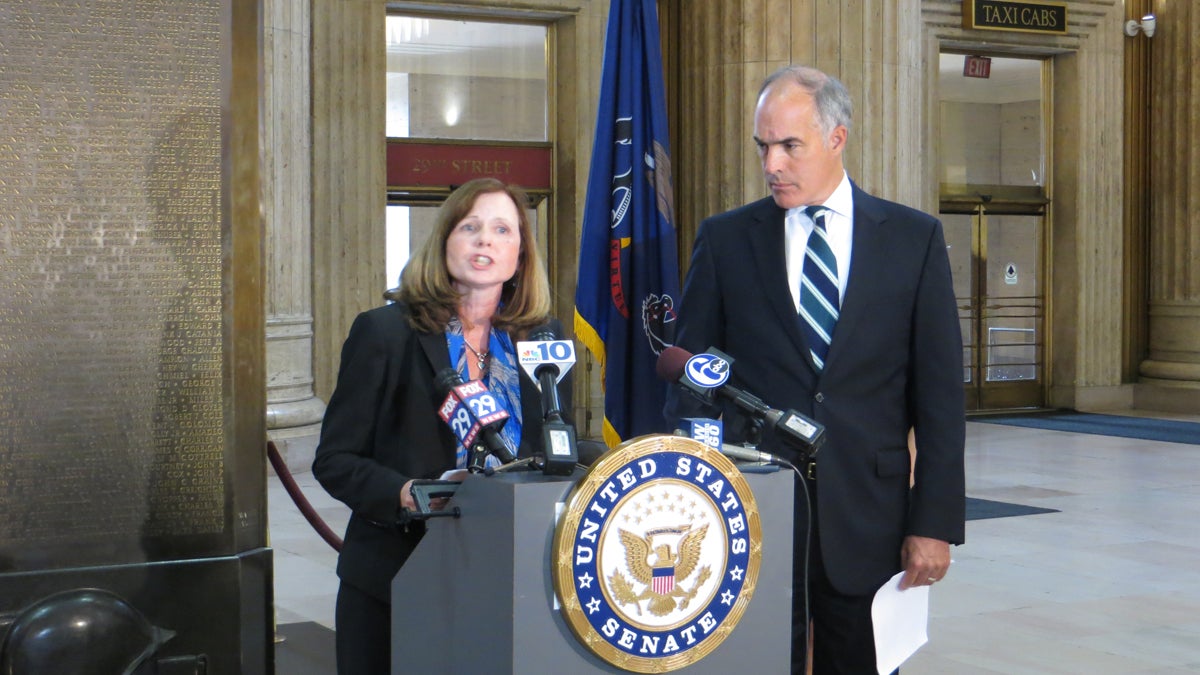Casey, nurses stress need for health professionals in schools

U.S. Sen. Bob Casey and Maura McInerney of the Education Law Center of Pennsylvania hold a press conference at 30th Street Station to make the case for more funding for school nurses.(Taunya English/WHYY)
With the deaths of two Philadelphia schoolchildren still in the news, U.S. Sen. Bob Casey is proposing more funding for school nurses.
Facing tight budgets, the Philadelphia School District has trimmed its roster of school nurses recently.
Casey gathered health workers at 30th Street Station Monday to make his case for enough funding to restore those ranks.
Cheryl Peiffer, president of the Pennsylvania Association of School Nurses, said she and her colleagues are often a student’s only link to regular, primary care.
“Parents’ll say, ‘Go see your school nurse, see what she thinks. Do I really need to make a doctor’s appointment?'” she said. “It’s tough for parents these days. You are their first line of support.”
Many nurses divide their time between several schools. Peiffer said just 45 percent of Pennsylvania schools have a certified school nurse on site all day, every day.
State law requires one nurse for every 1,500 students, while the Education Law Center said a safer ratio is one nurse for every 750 kids.
The center surveyed school nurses and parents groups in Philadelphia in 2013.
“Seventy percent reported that medications were now being administrated by teachers,” said staff attorney Maura McInerney. “Children are losing critical time in the classroom, they are losing instruction hours because they have to be taken out of the class or go home because of the absence of school nurses.”
Casey is supporting legislation to create a Department of Education grant.
The federal government, states and local schools would share the cost of hiring more nurses to improve nurse-to-student ratios.
Peiffer cares for kids at Methacton High School in Montgomery County. When she first became a school nurse, there was just one child with diabetes in a school of 900. Today the school is larger, and the health problems of the population are more complex.
“I have 12 students with diabetes. I see over a hundred students a day. I have 24 children with diagnoses of autism or Down syndrome,” Peiffer said.
WHYY is your source for fact-based, in-depth journalism and information. As a nonprofit organization, we rely on financial support from readers like you. Please give today.

